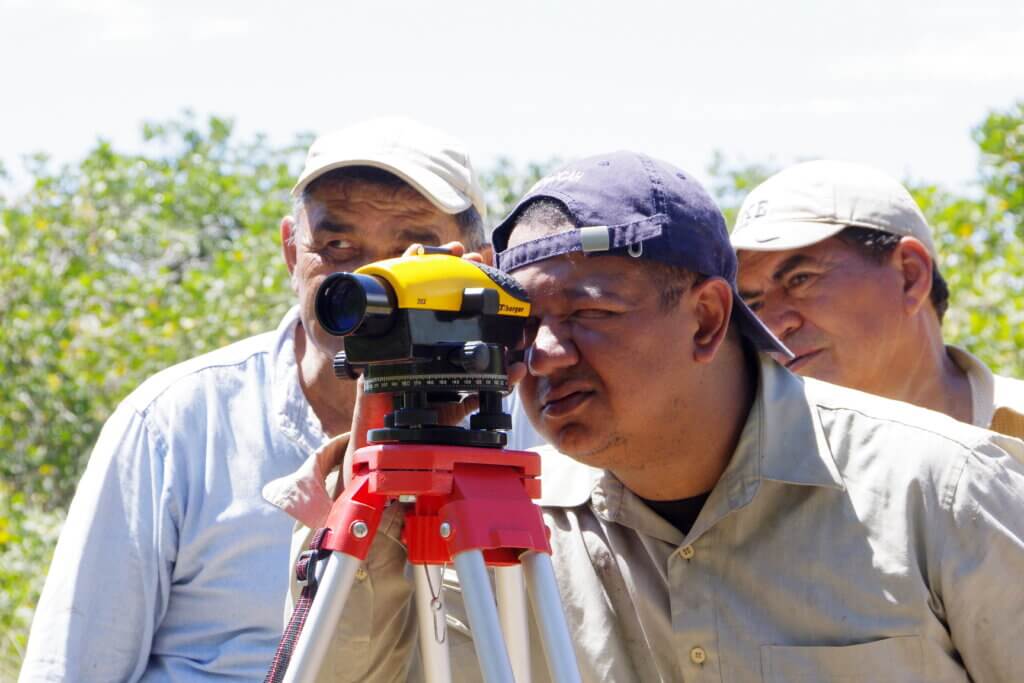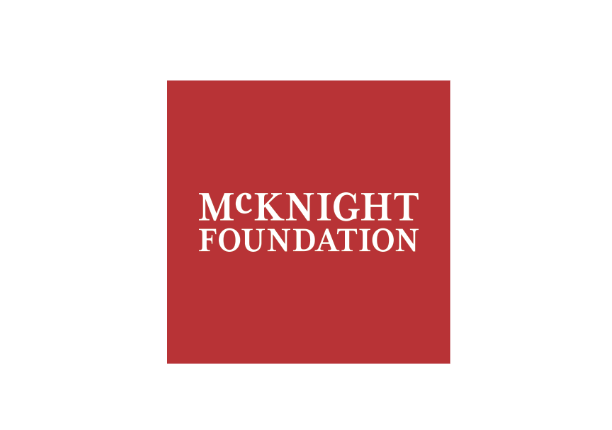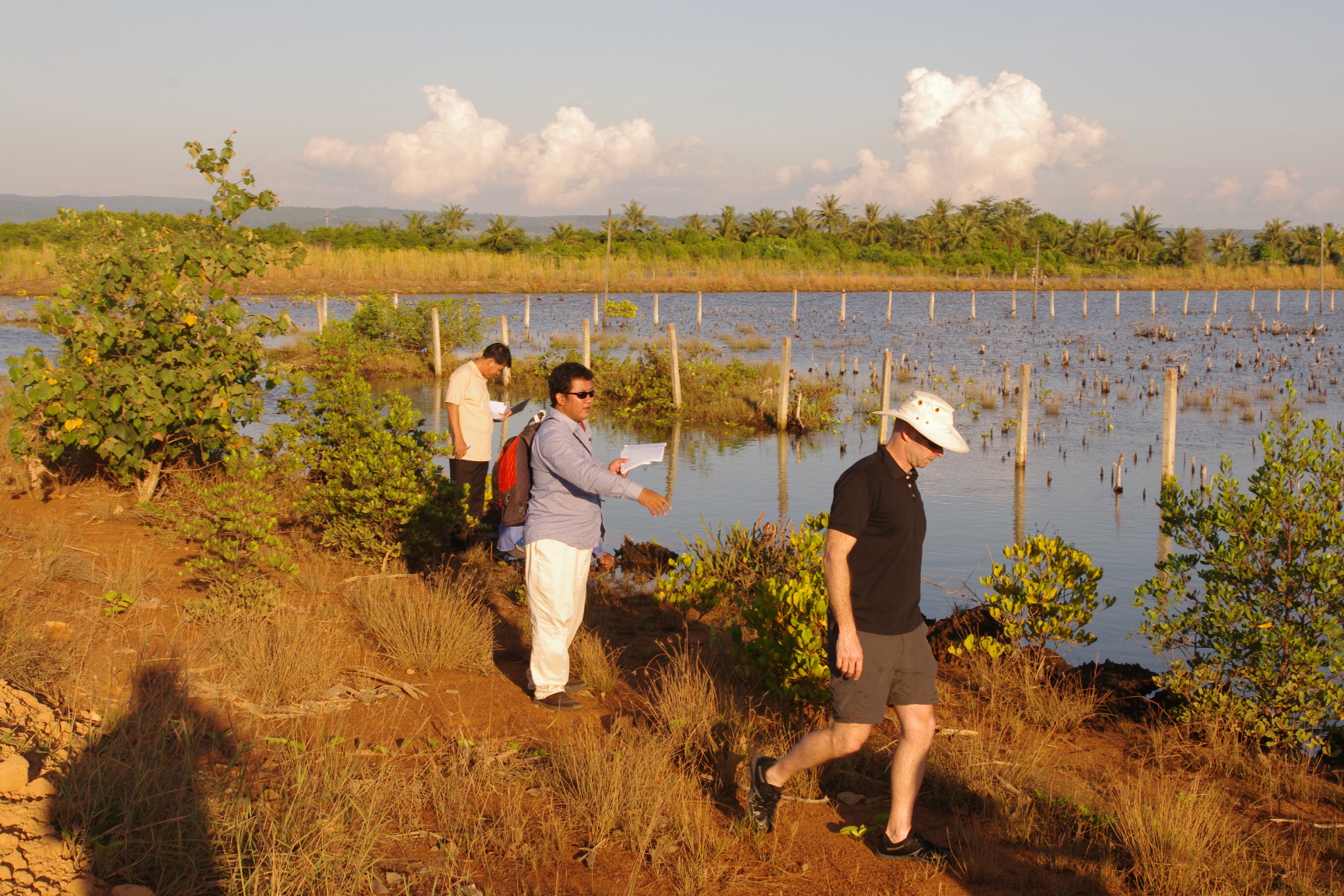
Strengthening Mangrove Restoration Skills in Cambodia
Location: Koh Kong, Cambodia
Date: December 2011
Goal: To deliver training in Ecological Mangrove Restoration methods and provide an opportunity for networking
Partners

Training provided in monitoring and evaluation methods to ensure long-term restoration success

Hands-on learning improved understanding of mangrove hydrology and ecology
28 participants trained in ecological mangrove restoration
What we did
A field visit to Bak Klong village allowed participants to apply their knowledge in a real-world setting. Working in groups, they conducted site assessments, gathering data on factors such as site history, tides, hydrological systems, salinity levels, land ownership, and existing species. Afterwards, the groups reviewed and discussed the information collected and prepared presentations describing how they would restore their allotted area.
A dedicated session covered the importance of monitoring and evaluation in mangrove restoration. Participants were trained in transect survey methods and discussed how reference sites of healthy mangroves could be used for comparison. Monitoring ensures that issues are identified and addressed early, provides valuable lessons for future projects, and offers evidence of success for donors and stakeholders.
By the end of the workshop, participants had a deeper understanding of the challenges and solutions in mangrove restoration. They gained practical skills to assess and restore mangrove ecosystems more effectively, helping to improve the long-term success of their own projects.
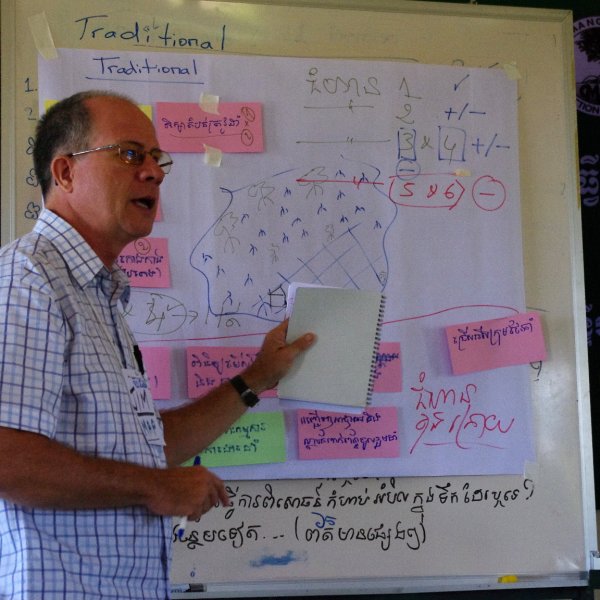
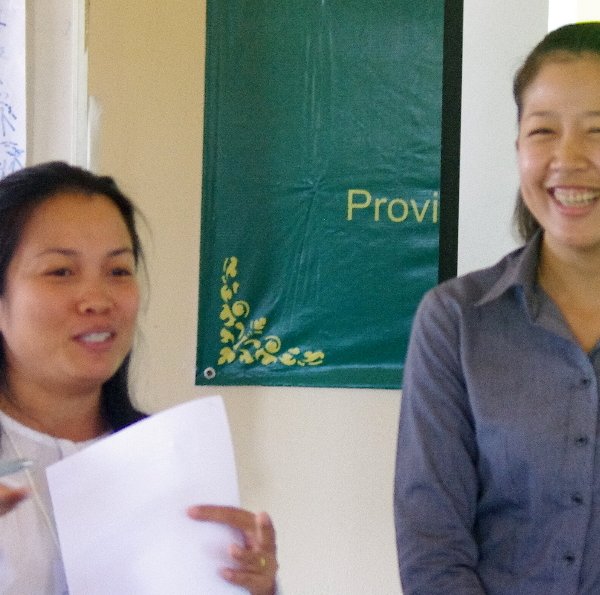
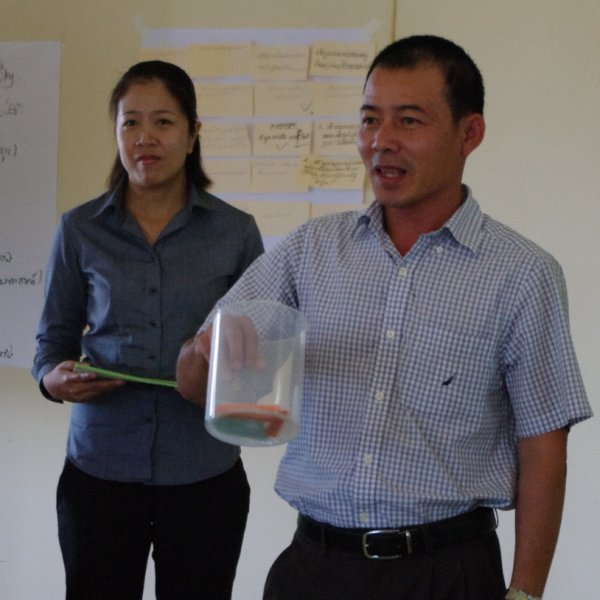
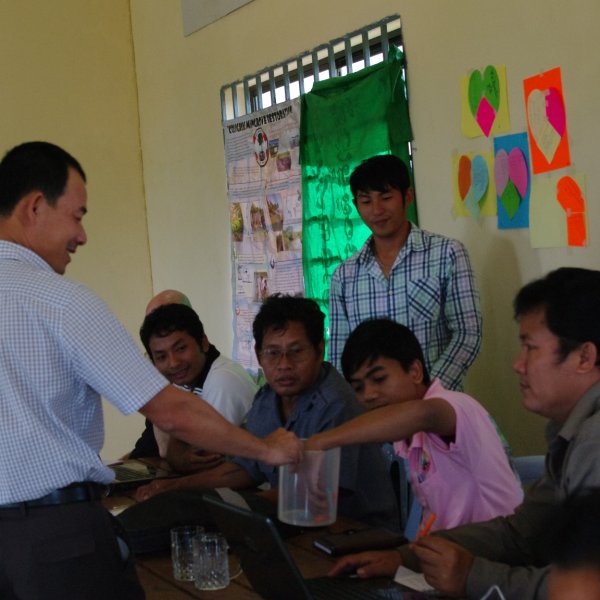
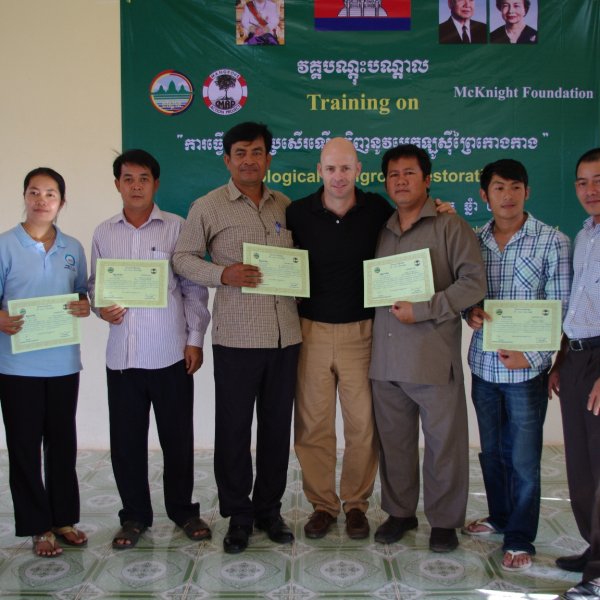
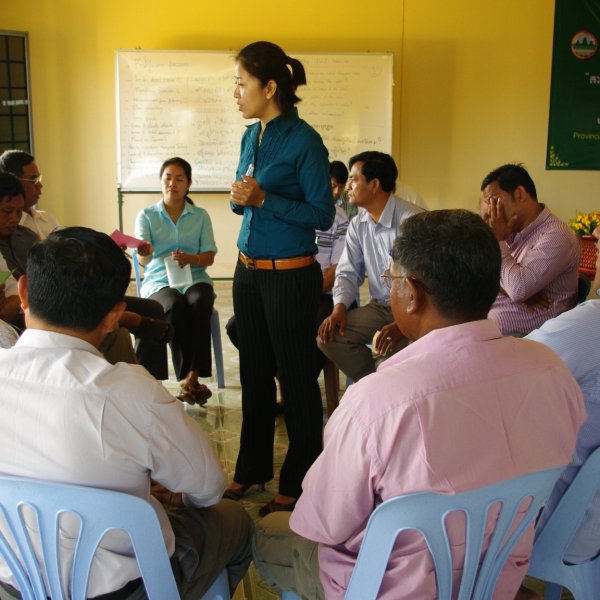
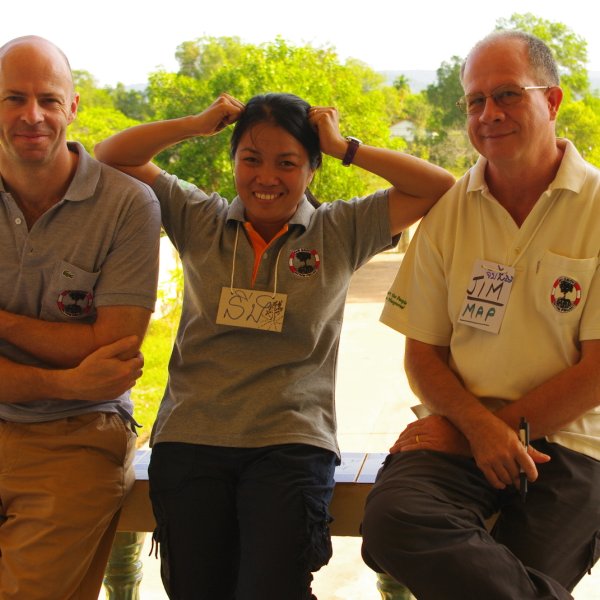
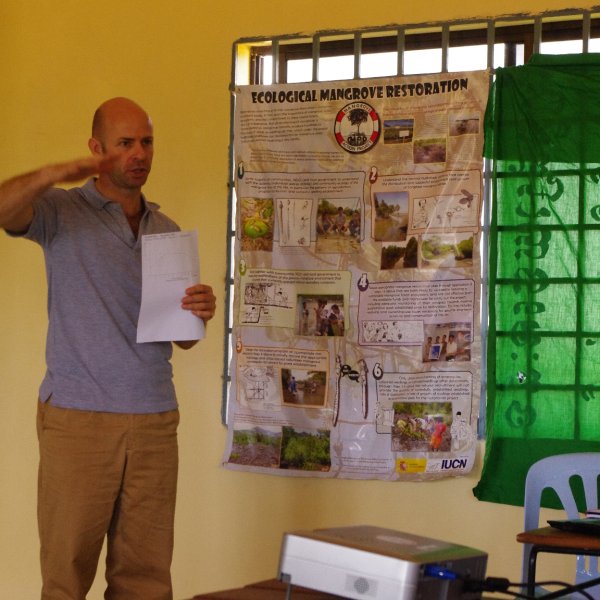
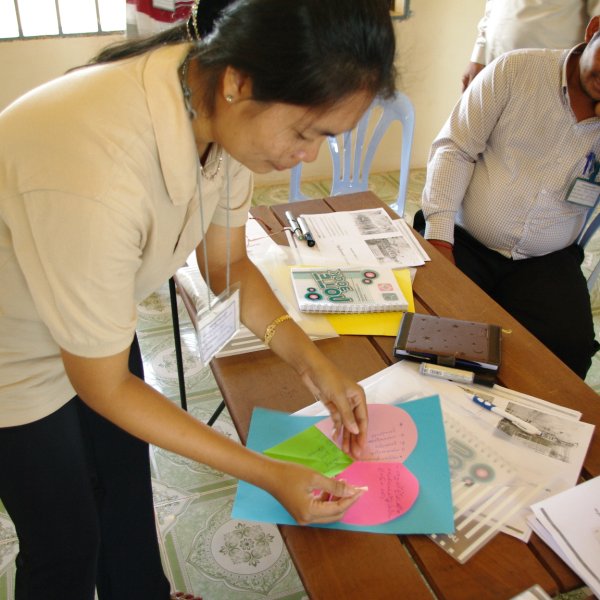
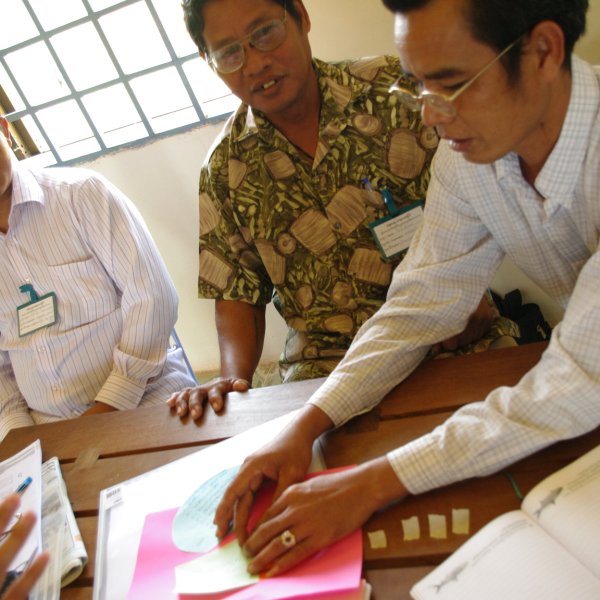
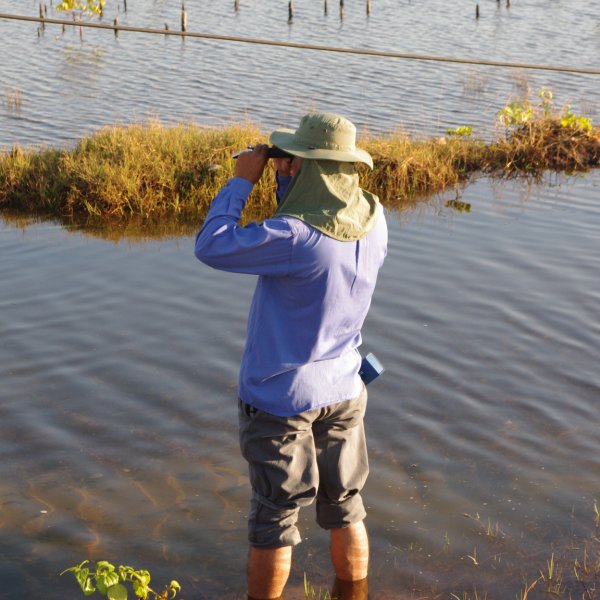
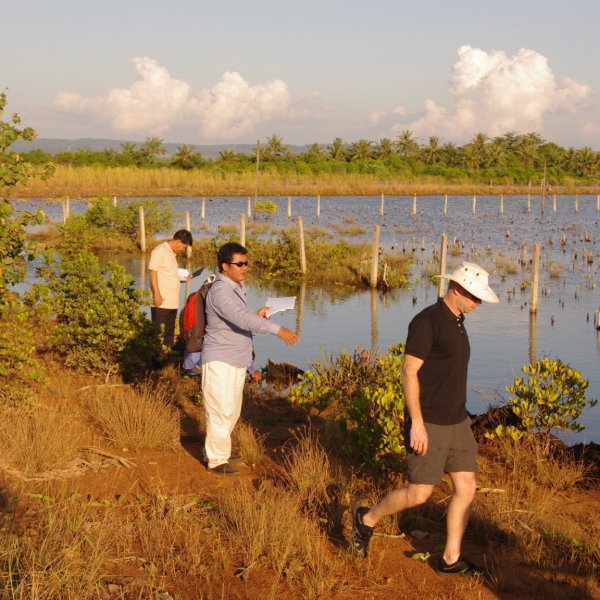
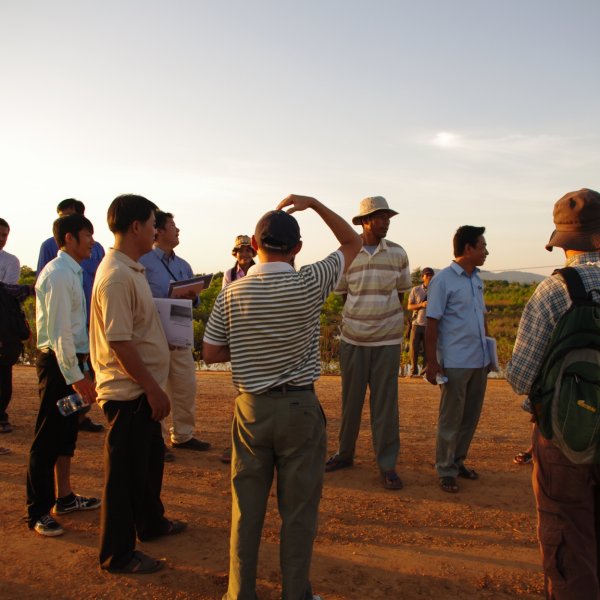
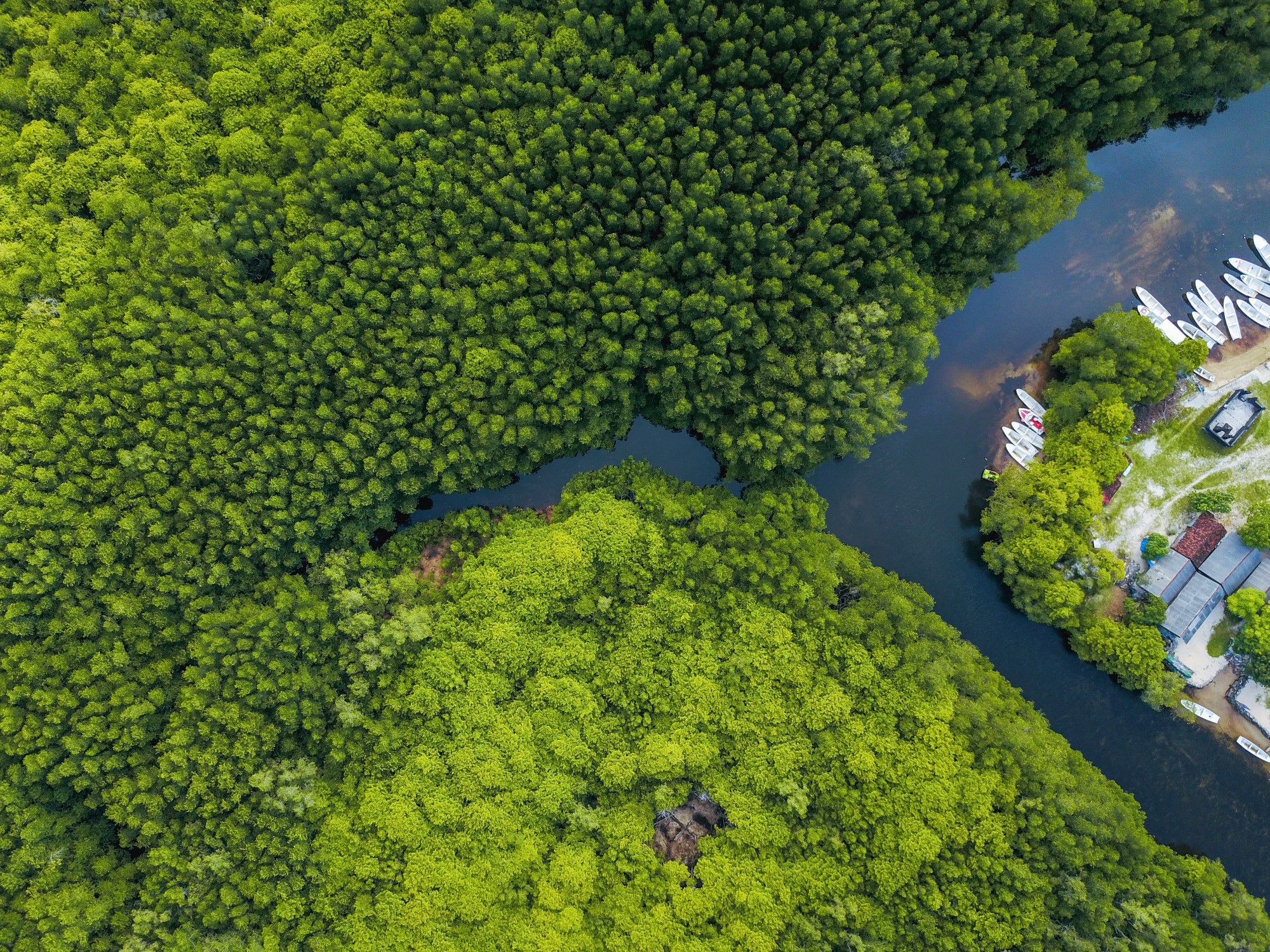
Interested in working with us?
Get in touch with us at dominic@mangroveactionproject.org
Related work
- Read more about Enhancing Community-Led Restoration in the Gulf of Guayaquil
Enhancing Community-Led Restoration in the Gulf of Guayaquil
Location: Guayaquil, Ecuador Date: August 2023 Goal: Train participants in the CBEMR approach to enhance mangrove restoration efforts in Guayaquil…
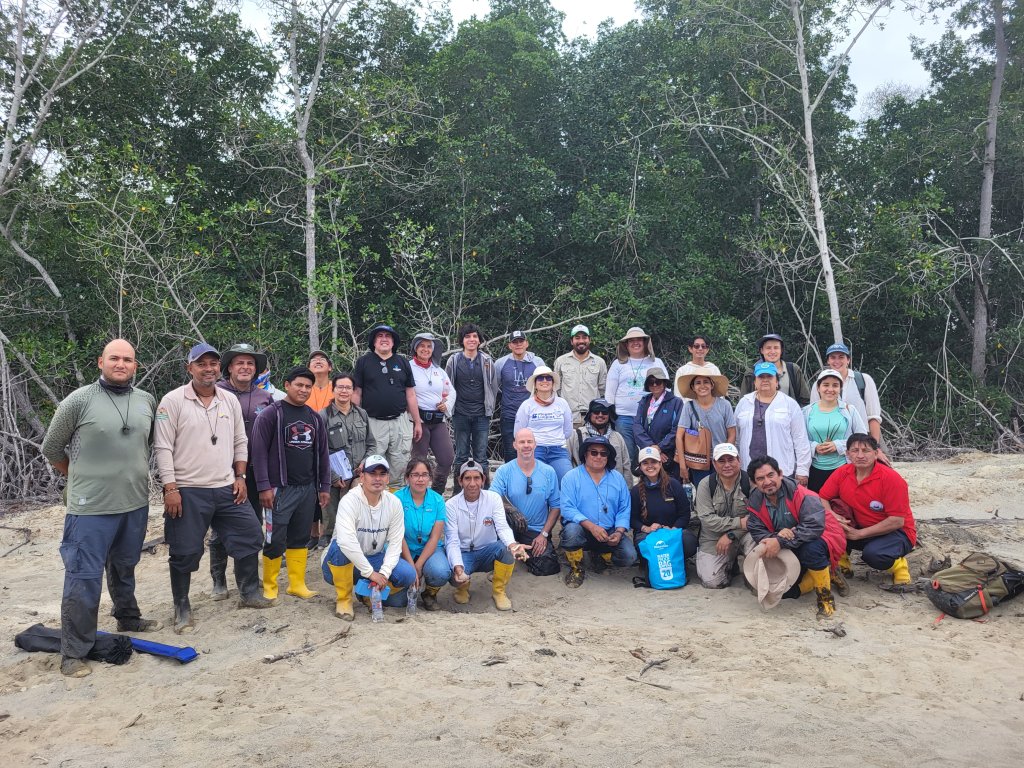
- Read more about From Theory to Practice: Enhancing Restoration through CBEMR
From Theory to Practice: Enhancing Restoration through CBEMR
Location: Bengkalis Island, Indonesia Timeline: October 2023 Goal: The training aimed to enhance participants’ knowledge and skills in Community-Based Ecological…
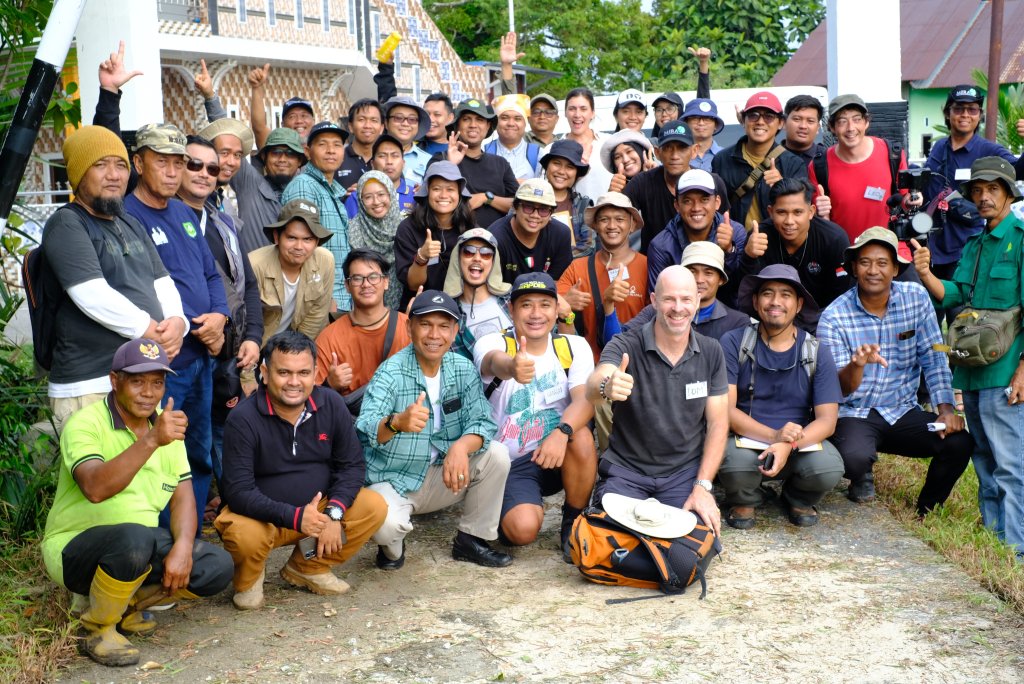
- Read more about Restoring vital ecosystems in Kenya
Restoring vital ecosystems in Kenya
Location: Kenya Timeline: 28th Feb - 21st March 2022 Goal: To share the knowledge and tools for restoring mangroves: a vital…
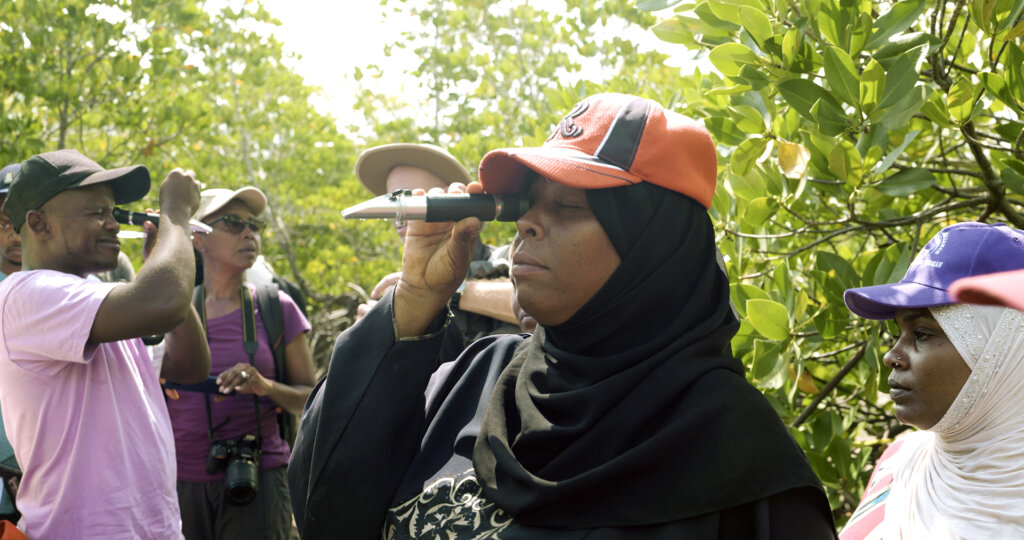
- Read more about Delivering mangrove restoration best practices in the Bahamas
Delivering mangrove restoration best practices in the Bahamas
Location: Bahamas Timeline: March - April 2023 Goal: To support local mangroves restoration efforts and implement best practices for future…
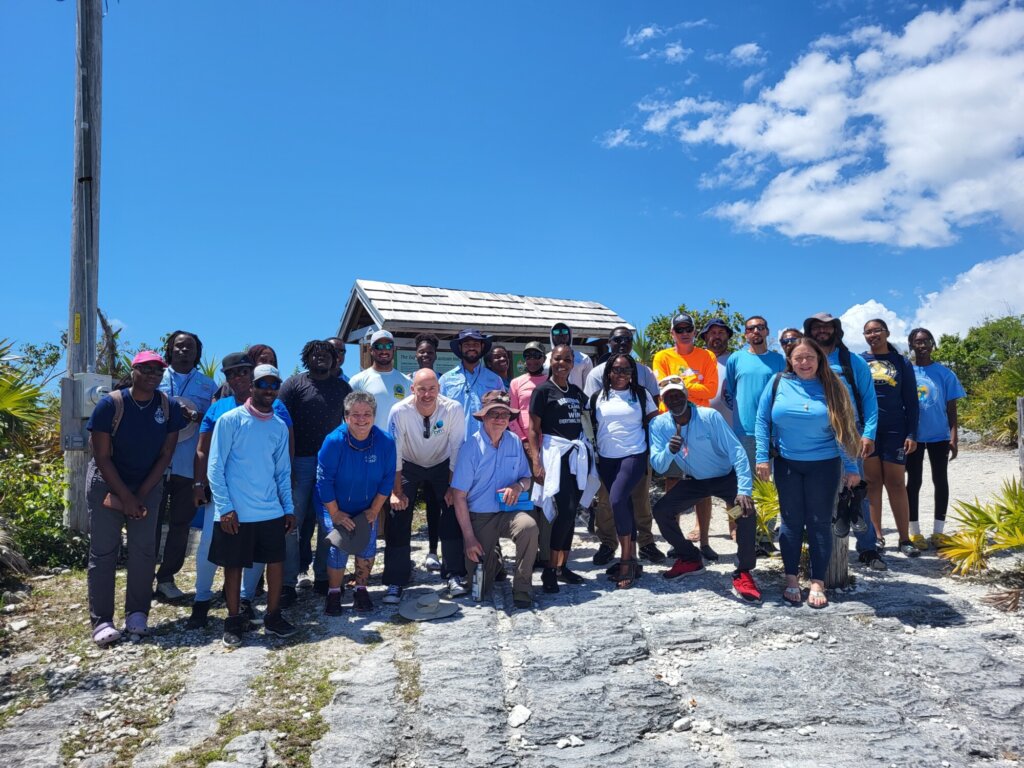
- Read more about Fostering a sustainable network in Honduras
Fostering a sustainable network in Honduras
Location: Honduras Timeline: February 2015 Goal: To work collaboratively with local officials to persuade local villagers and village leaders to reduce…
